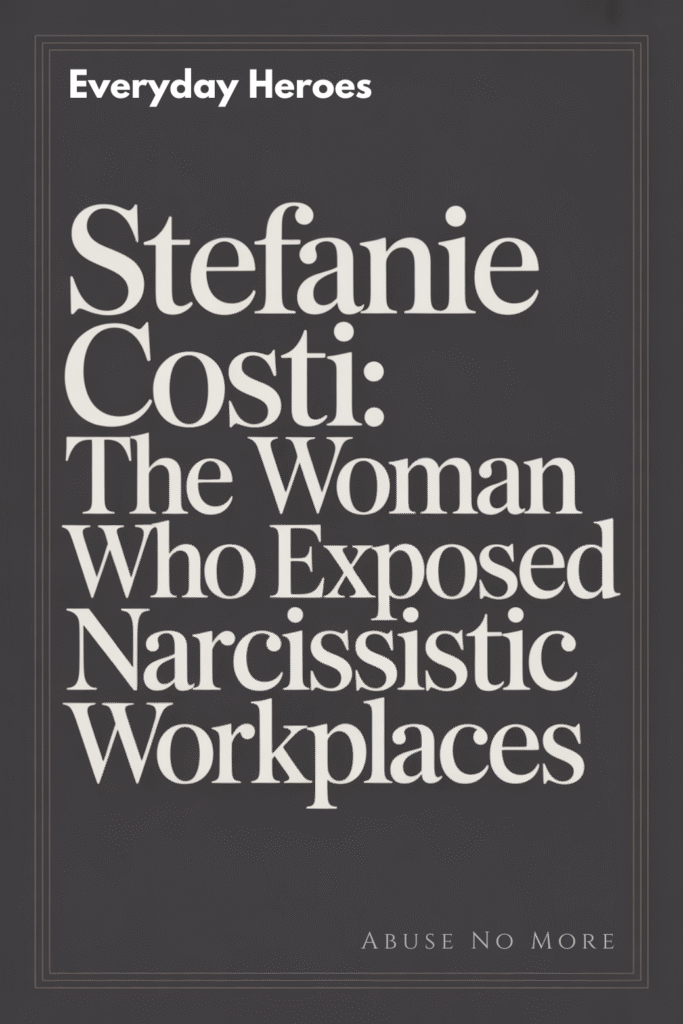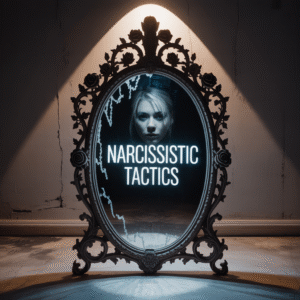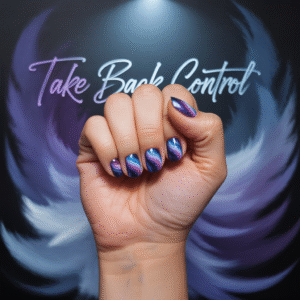Now Reading: Leaving the Lair: Planning Your Exit from a Narcissist-Run Workplace
-
01
Leaving the Lair: Planning Your Exit from a Narcissist-Run Workplace

Leaving the Lair: Planning Your Exit from a Narcissist-Run Workplace
🧳 It’s Not Just a Job — It’s a Trap
You’ve tried everything.
You set boundaries. You stayed professional. You swallowed your pride, your rage, your damn near entire identity to keep the peace.
But the gaslighting’s getting louder.
The sabotage’s getting slicker.
And your body’s telling the truth your brain is still negotiating:
It’s time to go.
Leaving a narcissist-controlled workplace isn’t like leaving a normal job. It’s not just about résumés and cover letters — it’s about psychological detox and strategic protection.
The IMC Method™ isn’t just about staying sane — it’s about getting free.
🧠 Why It’s So Hard to Leave — Even When You Know You Should
Let’s get this out of the way:
You’re not weak for staying this long. You’re human.
Narcissistic work environments are addictive — by design. They hook you with:
- Love-bombing from leadership
- Unpredictable rewards (“Look who got a shout-out in the newsletter!”)
- Trauma bonding with coworkers (“We’re all suffering together”)
- False hope (“Maybe next quarter it’ll get better…”)
- Guilt (“Don’t abandon the team — we need you”)
Spoiler: they don’t need you. They just need someone to control.
🎯 IMC STEP 1: IDENTIFY
What’s keeping me stuck — and what am I leaving behind?
Before you pack your metaphorical bags, name your real reasons for going — and staying.
You can’t move strategically if you’re still emotionally tangled.
Ask:
- What’s the impact on my body, sleep, or relationships?
- Am I staying out of fear, obligation, or false hope?
- Do I trust leadership — or am I constantly bracing for betrayal?
📎 Example:
“I realized I wasn’t scared of losing the job. I was scared of losing the identity I had tied to surviving it. Once I named that, I could let it go.”
🧯 IMC STEP 2: MINIMIZE
How do I plan my exit without tipping them off — or sabotaging myself?
Here’s the truth: narcissists don’t take well to being abandoned.
That’s why you’re not just quitting — you’re ghosting with grace.
Your silent prep checklist:
- Start collecting everything now:
- Performance reviews
- Project records
- Testimonials
- Work samples
- Emails that show results or misconduct
- Don’t announce anything. Narcissists love to sabotage “lame duck” employees.
- Secure references before leaving — from safe allies only.
- Use PTO smartly. Not just for rest — but for interviews.
- Watch your tech. Wipe personal info. Download files you own.
- Update your resume quietly — and often. Keep it fresh, even if you stay longer than expected.
📎 Example:
“I told my team I was taking time off for mental health. During that time, I networked, interviewed, and accepted a job. I resigned with two weeks’ notice and zero chaos.”
🛡️ IMC STEP 3: CONTROL
How do I leave without regret — and without bringing their baggage with me?
You don’t just walk away. You reclaim your narrative.
This isn’t a failure story. This is your liberation arc.
Power moves on your way out:
- Craft a calm, non-emotional exit message. No shade. No dirt. Just grace — and receipts if needed.
- Decide how much truth to tell. You don’t owe them your trauma diary.
- Protect your peace. Ghost toxic coworkers. Set digital boundaries.
- Say yes to decompression. You will feel weird at first. That’s detox.
- Redefine success. Leaving isn’t quitting — it’s outgrowing.
📎 Exit Statement Template:
“After careful thought, I’ve decided to pursue new opportunities aligned with my goals and values. I’m grateful for what I’ve learned and look forward to what’s next.”
📎 Example:
“I left with a basic resignation letter, blocked two coworkers, and started therapy. Three months later, I was sleeping again and actually laughing at work.”
💔 What You Might Feel — And Why It’s Okay
| Emotion | Why It Happens |
|---|---|
| Relief | You finally did it — your body can breathe. |
| Guilt | You were trained to believe self-preservation is selfish. It’s not. |
| Anger | You’re seeing the manipulation clearly now. Let it burn clean. |
| Sadness | Even toxic places can feel like home. Doesn’t mean you were wrong to leave. |
| Fear | You’re stepping into the unknown. That’s growth. That’s power. |
🚪Red Flags in the Exit Interview (Optional — But Know This)
If you’re doing an exit interview with HR, stay factual, not emotional.
DO:
- Describe patterns, not personalities
- Frame it around values (“I was seeking clearer communication and accountability”)
- Mention retention, morale, and performance impacts
DON’T:
- Use the word “narcissist”
- Vent, cry, or overshare
- Expect change — just plant seeds for your own closure
📎 Pro Tip: If you think it’ll get twisted? Decline the interview. You’re not obligated.
🧠 IMC Exit Matrix
| Phase | Focus | Actions |
|---|---|---|
| IDENTIFY | Why you’re leaving | Track patterns, clarify values, trust your body |
| MINIMIZE | Protect the transition | Quiet prep, no announcement, secure references |
| CONTROL | Own your exit | Script your message, control the narrative, start recovery |
💬 Affirmations for the Exit Door
- “I don’t need their permission to leave a toxic system.”
- “I can protect my peace without proving a point.”
- “I’m not leaving a job. I’m leaving psychological warfare.”
- “They don’t get the final word — I do.”
💥 Final Word
Walking away from a narcissistic workplace doesn’t mean you failed.
It means you won the battle of self-trust.
You saw through the lies.
You stopped the self-sacrifice.
You chose your future over their dysfunction.
























